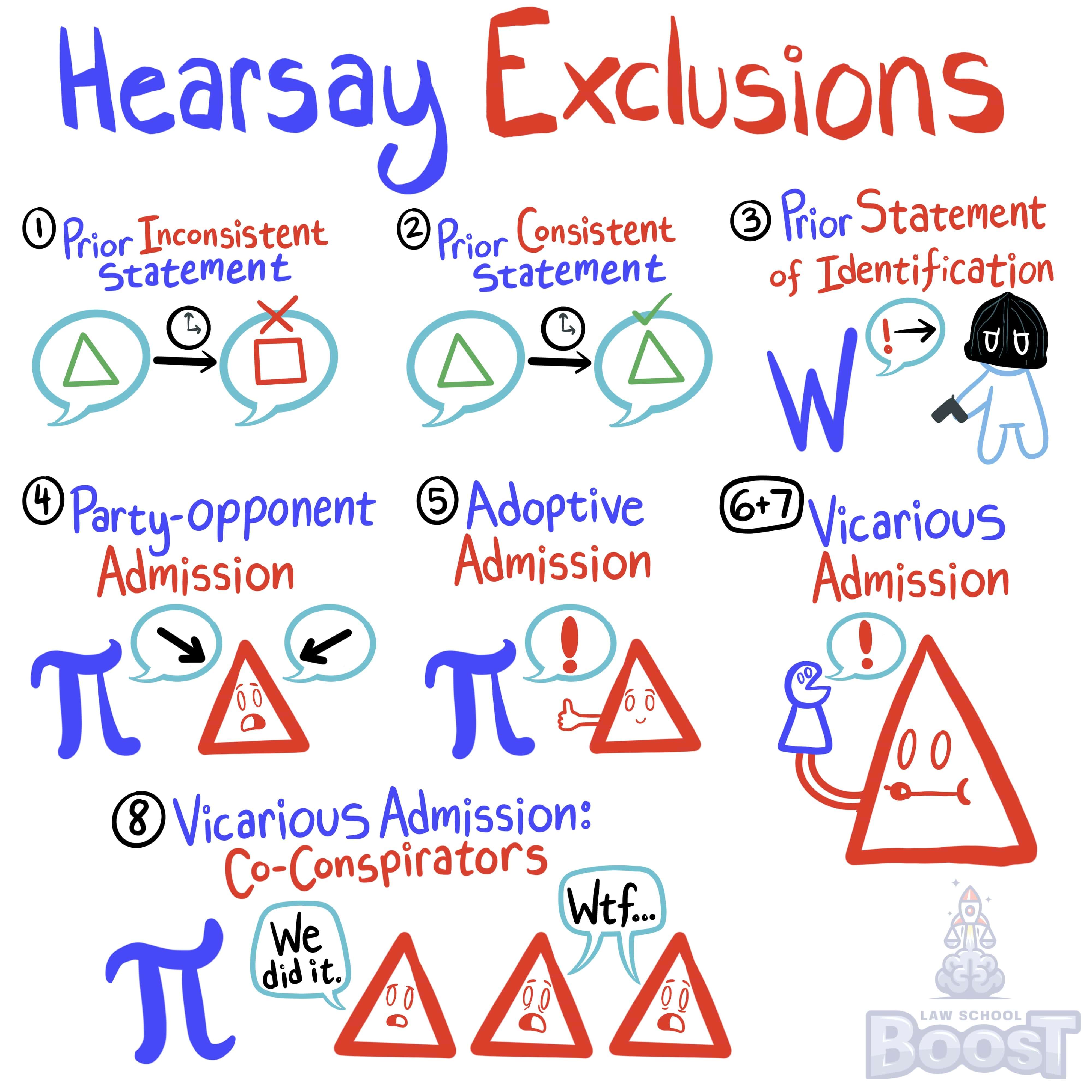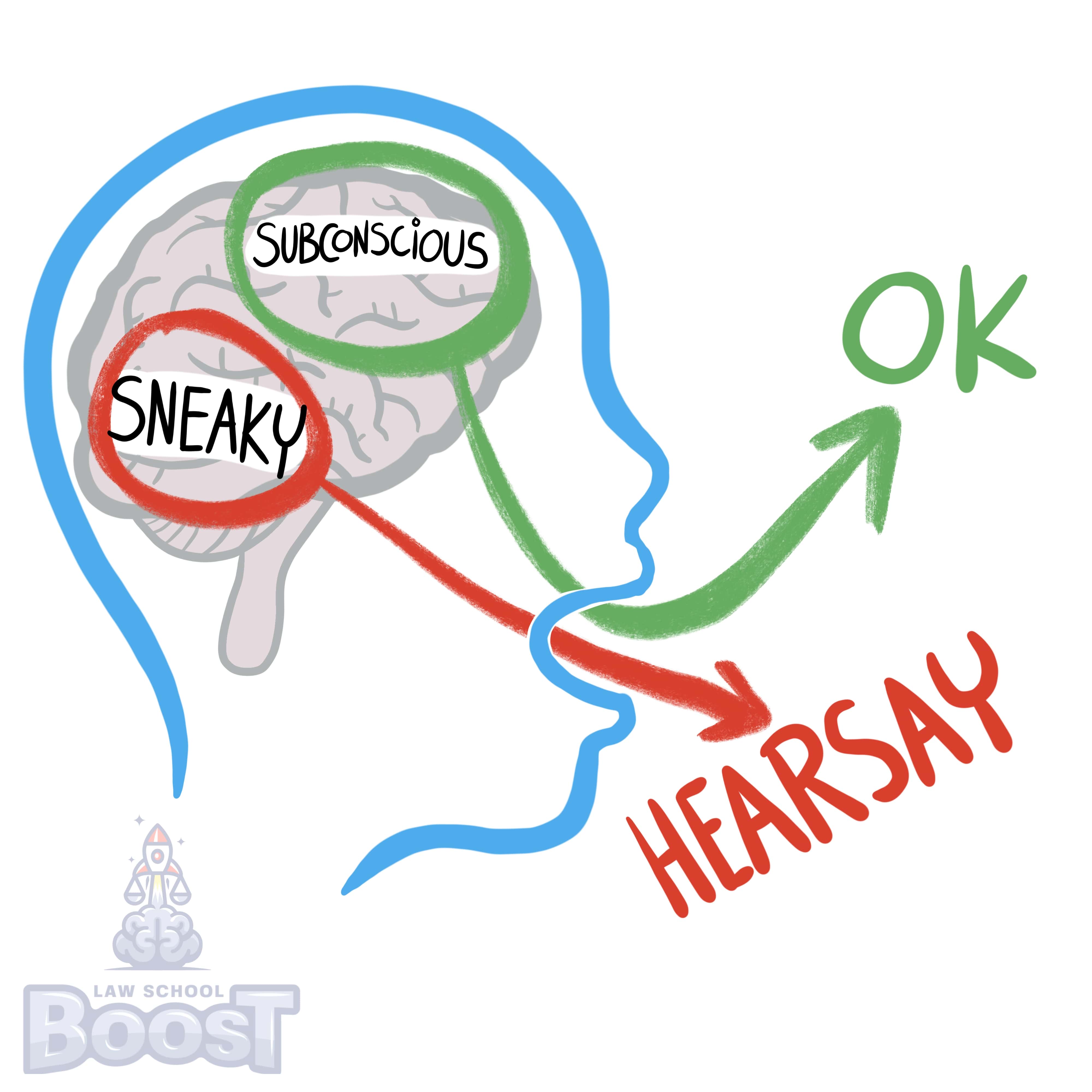🦅
Federal Evidence • Hearsay Exclusions
EVID#030
Legal Definition
A vicarious admission from a principal-agent is a hearsay exclusion. It is a statement by an agent concerning any matter within the scope of agency made while the employment relationship exists.
Plain English Explanation
A "vicarious admission" is when an employee (agent) says something that can be used as evidence in court against the boss (principal) who they work for. This is allowed because the employee is acting on behalf of the boss and their statement can be considered as coming from the boss themselves as long as it was made within the normal scope of an employee's job and duties.
Hypothetical
Hypo 1: Bob owns a store and Sam is one of his employees. Amy, a customer, comes in and complains that one of the refrigerators she bought from Bob's store failed and all of Amy's food spoiled. Sam says, "Yeah, that sounds about right... that refrigerator was having issues the day before we sold it to you." Result: When Amy sues Bob, she can use Sam's statement as a "vicarious admission" that Bob knowingly sold a broken refrigerator.
Hypo 2: Bob is a company owner and Sam is his sales representative. Bob is being sued by Amy for breach of contract because the Amy claimed that the product was not delivered as promised. In court, Amy presents a statement from Sam where he stated that Bob knew about the delays in delivery but didn't inform her. Result: This statement of Sam can be used as evidence against Bob because Sam was acting as an agent of Bob and the statement is made within the scope of his employment
Hypo 3: SpaceOops launched a new experimental rocket that ended up exploding and causing harm to various homeowners around the launch site. When the news reporters arrive at SpaceOops headquarters, the only employee there to ask questions is Bob, a janitor. A reporter asks Bob, "Why did the rocket explode?" Bob, responds, "Probably because the engineers were too lazy to double check their work." Result: Though Bob is an agent of SpaceOops, the engineering of a rocket is absolutely not within the scope of their employment, which means their statement about SpaceOops engineers being lazy would not fall under the vicarious admission hearsay exclusion.
Hypo 2: Bob is a company owner and Sam is his sales representative. Bob is being sued by Amy for breach of contract because the Amy claimed that the product was not delivered as promised. In court, Amy presents a statement from Sam where he stated that Bob knew about the delays in delivery but didn't inform her. Result: This statement of Sam can be used as evidence against Bob because Sam was acting as an agent of Bob and the statement is made within the scope of his employment
Hypo 3: SpaceOops launched a new experimental rocket that ended up exploding and causing harm to various homeowners around the launch site. When the news reporters arrive at SpaceOops headquarters, the only employee there to ask questions is Bob, a janitor. A reporter asks Bob, "Why did the rocket explode?" Bob, responds, "Probably because the engineers were too lazy to double check their work." Result: Though Bob is an agent of SpaceOops, the engineering of a rocket is absolutely not within the scope of their employment, which means their statement about SpaceOops engineers being lazy would not fall under the vicarious admission hearsay exclusion.
Visual Aids


Related Concepts
Does California recognize the hearsay exclusion of a vicarious admission from a principal-agent?
How does the prior inconsistent statement hearsay exclusion differ in California?
How does the prior statement of identification hearsay exclusion differ in California?
What is an admission by a party-opponent?
What is an adoptive admission?
What is a prior consistent statement?
What is a prior inconsistent statement?
What is a prior statement of identification?
What is a vicarious admission from a co-conspirator?
What is a vicarious admission from an authorized spokesperson?


